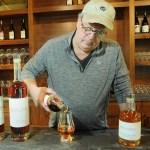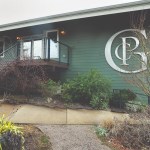Newberg winery finds that bad wine can make for good whiskey
Published 12:00 am Friday, January 19, 2024



The 2020 wildfires that struck much of Northwest Oregon were catastrophic for wineries as they produced wines that were acrid and, therefore, unsellable. Tens of thousands of gallons of the 2020 vintage were lost.
But rather than open the tap and let flow the product of its hard work, one local winery took another path: distilling the wine into brandy-based whiskey.
Rural Newberg winery Patricia Green Cellars recently released two whiskeys derived from wine: Multifarious and Purple Karma Pinnacle.
Trending
For the time being, the whiskeys will be sold at the North Valley Road winery under the moniker Patty Green Whiskey Distillers, named after the winery’s late founder. Eventually the winery plans to expand sales to bars, restaurants and liquor stores in the state, with national sales on the horizon.
Big Wild Spirits owner Lynsee Sardell is responsible for leading the effort to craft the concoctions.
“Patty Green Whiskey Distillers seemed to be the most appropriate name for this venture,” head winemaker Jim Anderson said in a release. “Everyone called Patricia ‘Patty’ so this brings her real name into the business, as well as taking her passion to save and fix anything she could. This project would have meant a lot to her to see it work this way.”
The process of turning wine into whiskey goes something like this: instead of using traditional corn distillate, experimental and heritage barley and rye purchased from Oregon farmers are distilled, then added to brandy distilled from the tainted wine to create “whiskeys that incorporate the best aspects of both grain and grape,” the release said. The mixture is generally about 80% grain distillate and 20% brandy distillate.
Anderson credited Sardell for creating something new at the winery.
“Working with Lynsee not only gave us the ability to pivot off of our smoke-tainted wine, but it also enabled us to work with a person that is creative, talented but also a collaborator with us, along with the farmers we purchase from and folks at Oregon State University who helped us develop this new expression,” he said. “We never imagined the commonality whiskey and wine could have, but tasting the individually distilled grains is a lot like tasting wines from our different vineyards.”
Trending
Nearly 140 cases of Multifarious whiskey, a blend of three strains of barley and a nod to the winery’s pinot noirs, has been aged in charred oak barrels and is 98 proof. The Purple Karma Pinnacle, named after the Tibetan heritage barley from which is distilled, saw only 37 cases bottled and is a stout 112 proof. Future releases will include strains such as Francin Barley, Baroness Barley, Gazelle Rye and Dark Northern Rye.
Sardell is no stranger to the distilling process, nor to that of winemaking. The Corvallis native grew up in a family with a tradition of crafting wine and beer.
“Her family used to tell vague stories about the old family vineyard in Italy and the use of every last seed and skin to make grappa for vineyard workers,” the release said. “Those stories turned into a fascination with the craft of distilling.”
Sardell opened Big Wild Spirits in 2020 and focused on utilizing locally foraged botanicals in her libations, the most famous of which is Witch’s Gin.
Sardell began working closely with Patricia Green Cellar’s Anderson and associate winemaker Matt Russell and soon, with the help of some of the winery’s investors, purchased Forest Grove’s Dogwood Distilling “to ensure the long-term viability of the whiskey project and to allow for creativity to flow into the vodka and gin producing distillery.”
The conglomeration was renamed Die the Wolf Distillery (loosely translated in Italian to “Good Luck”) and will continue to distill for the winery as well as produce high-end, non-grape agricultural products in the future.
“Whiskey, especially single strain barley whiskeys, are just as expressive of Oregon’s exceptional landscape as wine or filberts or any other cultivar we have here,” Sardell said. “Working with winemakers is a dream come true in that we’re able to imbue their skill, quality and sense of placemaking into one-of-a-kind whiskeys that are distinctly descriptive of the Pacific Northwest.
“Distilling whiskey, to me, is just that, concentrating an already remarkable grain into something even more expressive of place, time and a collaborative spirit (no pun intended).”










